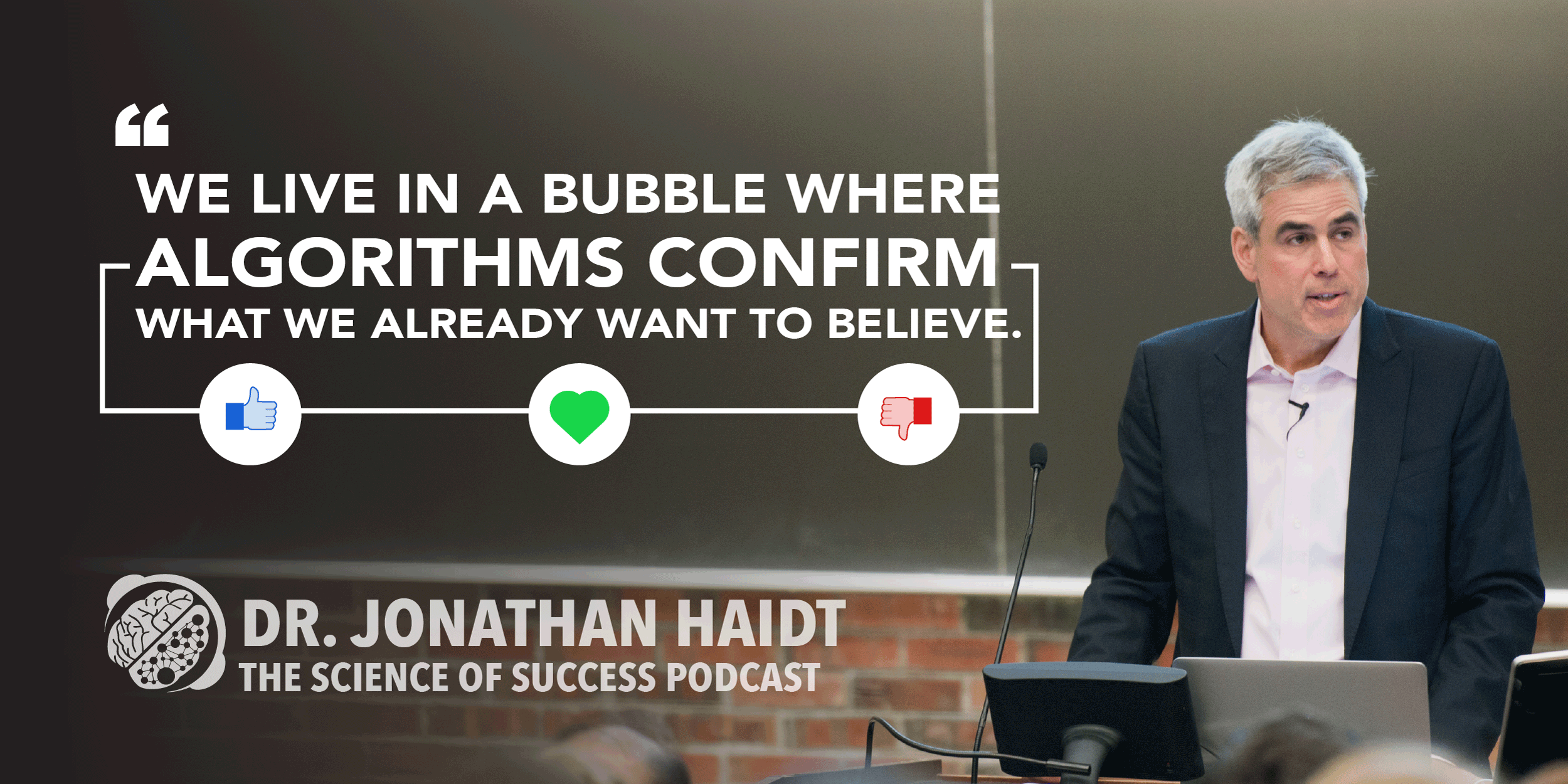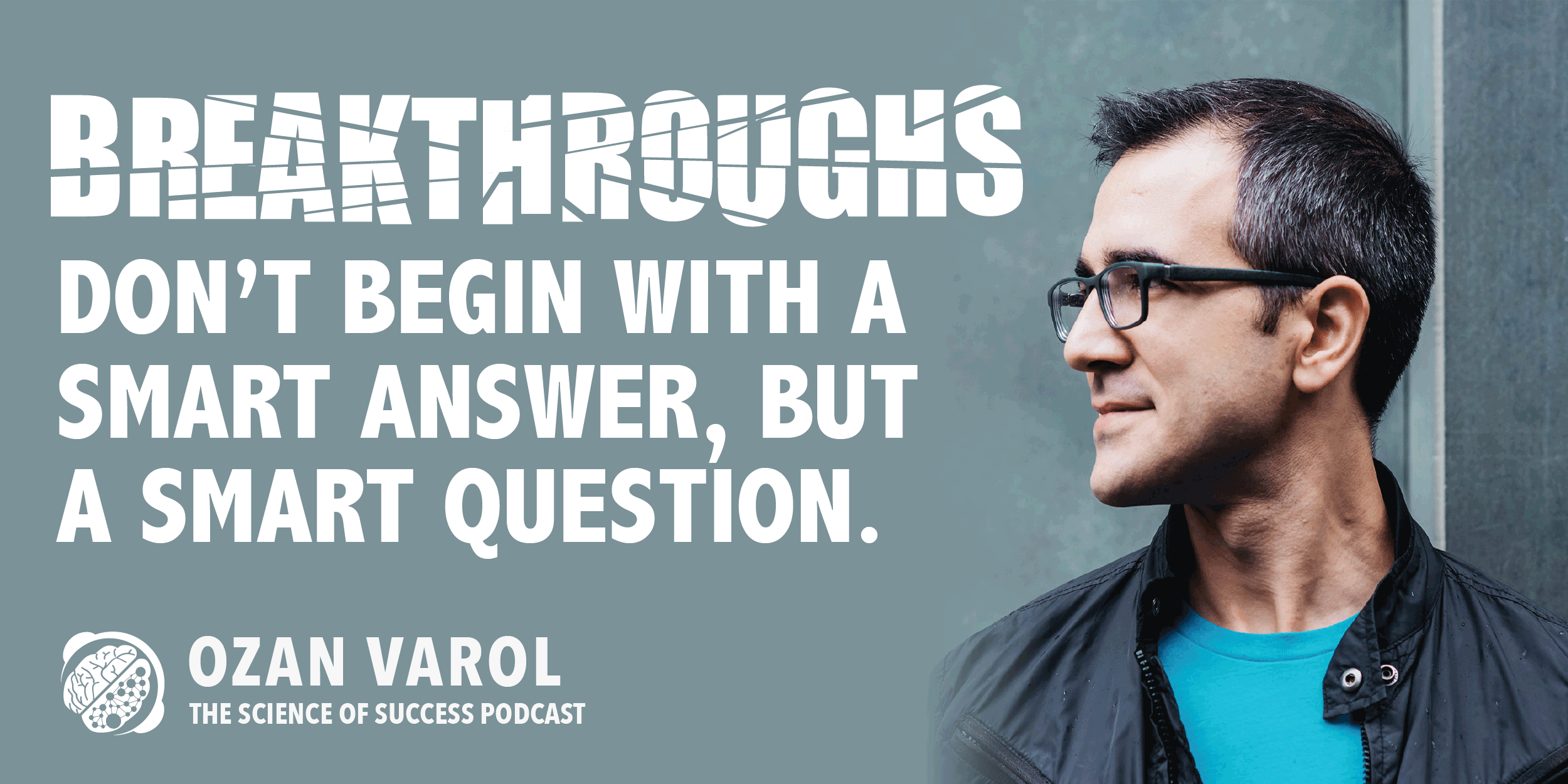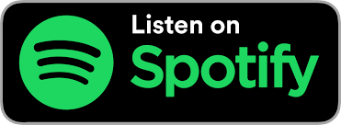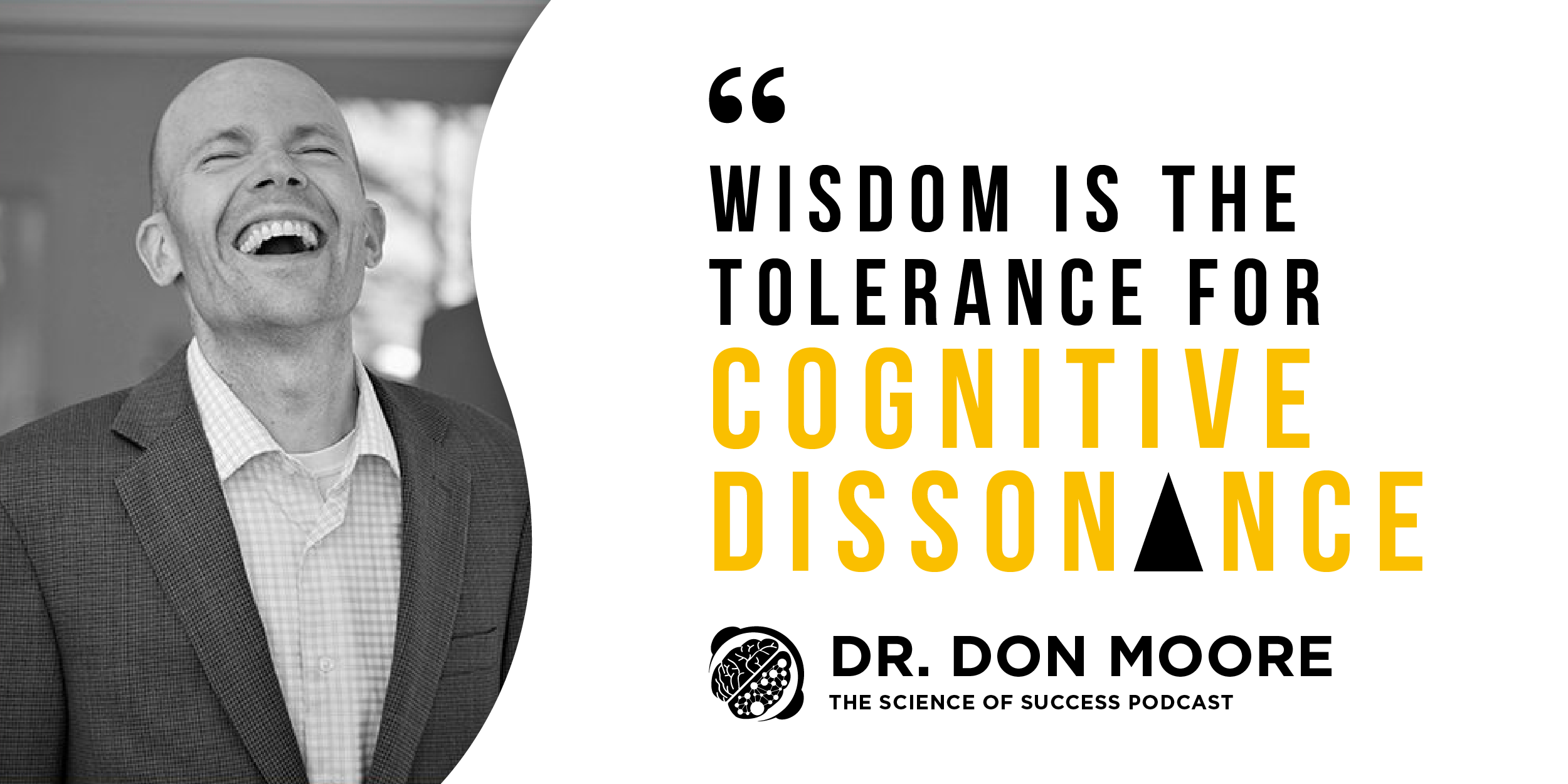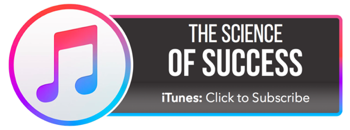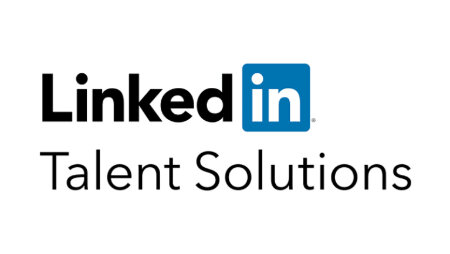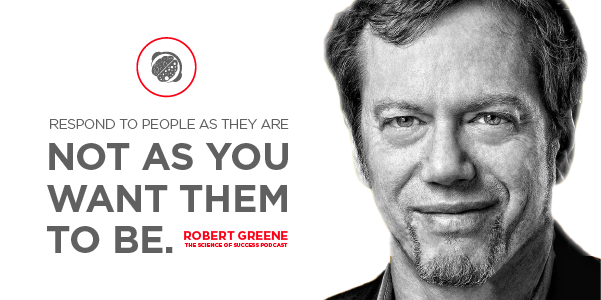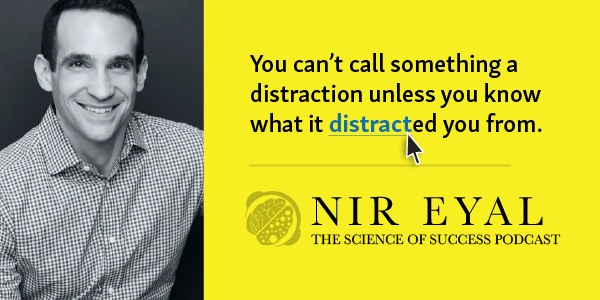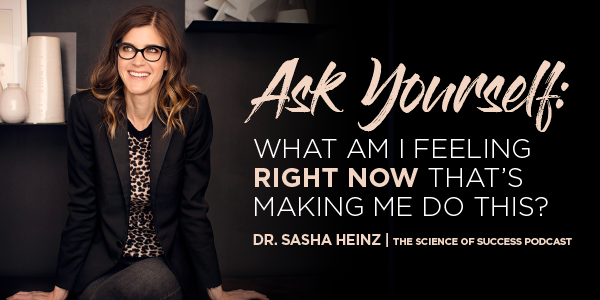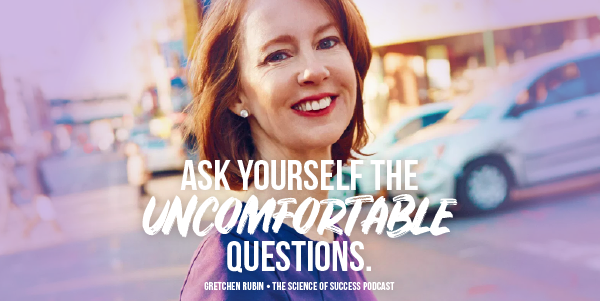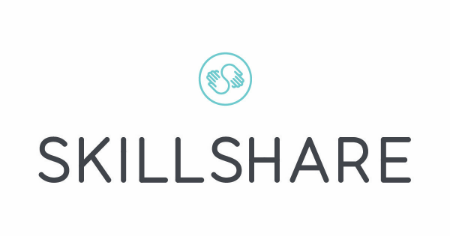FTA - Three Dangerous Ideas That Are Putting Our Society At Risk with Dr. Jonathan Haidt
In this episode we discuss several seemingly good ideas that are actually quite dangerous. We start with a look at how the immune system can teach us about the vital importance of being “anti-fragile.” We look at lessons from ancient cultural traditions all the way up to modern psychology research to peel back the layers of our current social dialogue and look at many notions that have permeated our current thinking. What are the best ways to promote growth and development? How can we help heal people who have suffered from trauma? How can we create a framework that allows for our society to seek the truth and solve our toughest challenges? We take a hard look at the answers to these questions and much more with our guest Dr. Jonathan Haidt.
Dr. Jonathan Haidt is a social psychologist and professor of ethical leadership at New York University’s Stern School of Business. He is the author of multiple books including most recently The Coddling of The American Mind: How Good Intentions and Bad Ideas are Setting Up a Generation for Failure. He is also the author of over 90 academic articles and his work has been featured across the globe.
In teaching psychology 101 Jonathan found that there was much wisdom in the ancient traditions around how we could be happier
There are a lot of really bad ideas being spread these days - despite the fact that they arise from good intentions
What can the immune system teach us about vital importance of anti-fragility?
The reason peanut allergies are rising is because America started protecting kids from peanuts in the early 90s
Kids need to get sick and be exposed to dirt and germs so that they can be healthier - that’s the cornerstone of the immune system
The importance of being anti-fragile
If you try to protect children you end up making them weaker, not stronger
The importance of play - free play without adult supervision - and letting children take risks
We can’t reach natural without a lot of play (in the form of risk taking)
Comfort zones are most often expanded through discomfort - we must be uncomfortable to grow
Our extreme culture of overprotection has really harmed children
Every ancient culture that leaves us with deep writing shares the idea that we don’t experience reality as it really is - we experience reality as we interpret it - our life is the creation of our minds
“There’s nothing either good or bad, but thinking makes it so"
You don’t grow in a threatening world - you hunker down and get defensive
Children need to be in the zone of exploration and excitement
You shouldn’t trust you first reaction - you need to question your first reaction
What happens when students themselves ask for protection from ideas and think that ideas will traumatize them?
A desire to protect those who are emotionally fragile is wrong - exposure is how you solve fear and emotional fragility
The way you overcome a phobia is not by hiding and walling yourself off from what you’re afraid of
If the goal is actually to help people - the entire culture of safetyism - that people are fragile and need to be protected - is directly opposed to the scientific research around what actually helps people
Are the phenomena of Safe space, trigger warnings, micro aggressions and the morality of “safetyism” that arose in the last few years healthy for individuals and society?
If you goal is healing trauma and helping people improve - embracing discomfort is the best solution
If your goal is to seek truth - then you must expose yourself to ideas you disagree with and have others challenge your ideas as well
If you goal is ideological victory then you try to silence your opponents ideas
If people don’t share ideas because they’re afraid of being attacked - then the entire goal of truth seeking cannot be achieved. Today people are afraid of speaking up and afraid of challenging many ideas
Humans are tribal creatures - we evolved with a tribal mentality in order to survive - and yet this instinct can be very destructive when we apply it to ideological divides
We’re playing the truth seeking game, we’re trying to make a diverse community, and we must give everyone the benefit of the doubt
Just as we don’t tolerate racism or sexism, we shouldn’t tolerate anyone silencing ideas
Silencing discussion and thought policing can actually foster support for damaging and negative ideas
This isn’t just a debate about how to interpret reality and communication - the culture of “safetyism” is a major contributor to the rise of suicide and anxiety
Since 2011 rates of suicide have risen 25% for men and 70% for women
This is a pragmatic argument - its not moral or political - and yet the dialogue today prevents the discussion of truth from even happening
What does the psychology tell us about child development and personal improvement?
What kind of norms are conducive to growth and self improvement?
The world is incredibly safe now - physically its very very safe
We live in a bubble where algorithms confirm what we already want to believe
Anything you say has infinite downside potential - you could be shamed and criticized - the internet and social media have enabled many intellectual “mob” dynamics where ideas that go against the norm are often silenced or never brought up
Our evolutionarily ingrained mode of thinking is more tribal/religious and this is directly opposed to the more scientific method of thinking and inquiry
What does it mean to be spiritual, but not religious? We have all the same religious psychology that we’ve always had, but without organized religion. And often these religious tendencies can manifest in social movements.
At times people fighting for a cause can drift into a tribal mindset
How can we “wise-up” ourselves and our children to think more clearly and embrace the lessons of psychology to be healthier, happier, and think more clearly?
The “Chicago Principles” for freedom of thinking - an open platform to speak, discuss, and debate ideas - so that you can make your case with evidence and good arguments.
If you don’t have diversity of ideas when you’re searching for truth you often come to erroneous conclusions. When we lose viewpoint diversity the science itself is at risk. If you don’t have diversity you’re likely to have bad thinking.
We have to think about the social process of how imperfect flawed individuals (like all humans) can work together to discover what’s true
Homework: Spread these ideas to others.
Homework: Think about the context and system you can to improve and think about how these principles can be appleid to keep healthy debate and productive disagreement
Thank you so much for listening!
Please SUBSCRIBE and LEAVE US A REVIEW on iTunes! (Click here for instructions on how to do that).
KiwiCo delivers hands-on science and art projects for kids of all ages. Everything needed to spark curiosity and kindle creative thinking, which makes KiwiCo the perfect gift!
With KiwiCo, kids can engineer a walking robot, design a paint pendulum, conduct bubbling chemistry experiments, and more – all from the comfort of home
KiwiCo is redefining learning, with hands-on projects that build confidence, creativity, and critical thinking skills.
There’s something for every kid (or kid-at-heart) at KiwiCo.
Get 50% off your first month plus FREE shipping on ANY crate line with code SUCCESS at kiwico.com.
Fundrise is an investing platform that makes investing in high-quality, high-potential real estate as easy as investing in your favorite stock or mutual fund. Whether you’re looking to add stable cash flow via dividends or prefer long-term growth through appreciation, Fundrise has you covered.
Start building your better portfolio today! Get started at Fundrise dot com slash SOS to have your first NINETY days of advisory fees waived. That’s www.fundrise.com/sos to have your first 90 days of advisory fees waived. www.fundrise.com/sos
Life can be stressful even under normal circumstances. 2020 has challenged even the most difficult times of life.
You need stress relief that goes beyond quick fixes. That’s Headspace. Headspace is your daily dose of mindfulness in the form of guided meditations in an easy-to-use app.
You deserve to feel happier, and Headspace is meditation made simple...
Go to www.headspace.com/success for a FREE ONE-MONTH TRIAL with access to Headspace’s full library of meditations for every situation.
Show Notes, Links, & Research
[Book] The Happiness Hypothesis: Finding Modern Truth in Ancient Wisdom by Jonathan Haidt
[Book] The Coddling of the American Mind: How Good Intentions and Bad Ideas Are Setting Up a Generation for Failure by Greg Lukianoff and Jonathan Haidt
[Amazon Author Page] Jonathan Haidt
[Book] Antifragile: Things That Gain from Disorder (Incerto) by Nassim Nicholas Taleb
[Book] The Black Swan: Second Edition: The Impact of the Highly Improbable (Incerto) by Nassim Nicholas Taleb
[Book] The Righteous Mind: Why Good People Are Divided by Politics and Religion by Jonathan Haidt
[Book] iGen: Why Today's Super-Connected Kids Are Growing Up Less Rebellious, More Tolerant, Less Happy--and Completely Unprepared for Adulthood--and What That Means for the Rest of Us by Jean M. Twenge PhD
[Book] Free-Range Kids, How to Raise Safe, Self-Reliant Children (Without Going Nuts with Worry) by Lenore Skenazy
[Website] Let Grow
[Website] OpenMind
[Website] Heterodox Academy
[Download] ALL MINUS ONE: John Stuart Mill’s Ideas on Free Speech Illustrated
[Website] The Coddling
[SoS Episode] The Biggest Threat Humans Face in 2018
[Wiki Article] Chicago principles
Episode Transcript
ANNOUNCER: Welcome to the Science of Success, the number one evidence-based growth podcast on the internet, bringing the world's top experts right to you. Introducing your hosts, Matt Bodnar and Austin Fabel.
[00:00:19] MB: Hello everyone and welcome to another episode of The Science of Success, the number one evidence-based growth podcast on the internet with over 5 million downloads and listeners just like you in over 100 countries. I'm your co-host, Austin Fable, and today we've got an incredible guest from the archives, Dr. Jonathan Haidt. We discussed several seemingly good ideas that are actually quite dangerous. We start with a look at how the immune system can teach us about the vital importance of being anti-fragile and then we look at lessons from ancient cultural traditions all the way up to the modern psychology research to peel back the layers of our current social dialogue and look at many of the notions that have permeated our current thinking. We thought this would be a great episode for right now given the political climate, the climate of the world, and just 2020 in general and a lot of the trends we've seen.
But before we dig into this great episode from the archives, are you enjoying the show and content we put out for you each and every week? I know you are. So there's two incredibly easy, yet tremendously impactful and helpful things you can do for Matt and I. First, leave us a quick five-star review on your podcast listening platform of choice. Do you know what that does? It helps other people like you find the show. Helping spread the word about The Science of Success and the great guests that we work to work with and produce content for you every single week. Second, go to our homepage at www.successpodcast.com and sign up for our email list today. Our subscribers are going to be the first people to know about all the comings and goings of the show, but you'll also have access to exclusive content that you're not going to get anywhere else. Specifically, when you sign up, the first thing you'll get is our free course we spent a ton of time on appropriately named How to Make Time for What Matters Most in Your Life?
Now, you may be on the go. You might be working out. You could be walking the dog. That's good for you. But sign up for the email list easily just by texting the word SMARTER to the number 44222 today and you'll be signed up immediately. If you haven't already, check out last week's episode with Thomas Steading. We share proven strategies for building a powerful culture in any business and uncover the truth about how your mindset can be one of the biggest game changers in business.
So now, back to this episode. As I mentioned, we're pulling it from the archives. Our guest is Dr. Jonathan Haidt. He's a social psychologist and professor of ethical leadership at New York University's Stern School of Business. He's the author of multiple books including The Coddling of the American Mind: How Good Intentions and Bad Ideas Are Setting Up a Generation for Failure. He's also the author of over 90 academic articles and his work has been featured all across the globe. Again, it was a great conversation. We thought it was a very appropriate time to bring Jonathan's episode back from the archives. And who knows? On the second listen, I'm sure you're going to learn something new you may have not seen on the first pass. If this is your first time, it's going to be a very relevant conversation for where you find yourself today as we go into the holidays given the pandemic and everything else. So without further ado, I will be quiet and here is our interview with Dr. Jonathan Haidt.
[00:03:29] MB: Today, we have another fascinating guest on the show; Dr. Jonathan Haidt. Jonathan is a social psychologist and professor of ethical leadership at New York University Stern School of business. He's the author of multiple books including most recently The Coddling of the American Mind: How Good Intentions and Bad Ideas Are Setting Up a Generation for Failure. He's also the author of over 90 academic articles and his work has been featured across the globe.
Jonathan, welcome to The Science of Success.
[00:03:54] JH: Hi, Matt. Thanks so much for having me on.
[00:03:55] MB: We’re very excited to have you on the show, and there's so much work that you've done that I think is super relevant for our audience, but I'd love to start with kind of the sort of opening parable of Coddling the American Mind and kind of the story of the guru and how that sort of explores some of the kind of, as you call them, untruths that are causing people to think sort of poorly about the world today.
[00:04:17] JH: Sure. So my first book is called The Happiness Hypothesis: Finding Modern Truth in Ancient Wisdom, and it grew out of a course I taught at the University of Virginia. I was a professor there for 16 years, and in teaching psych 101 I decided to – I found that I was often quoting the ancient, so I wrote a book basically taking ancient ideas and evaluating them as a psychologist. Are they true?
So what we do in The Coddling of the American Mind is we noticed that there're a lot of really bad ideas being taught to kids these days for good intentions. It’s always done for some purpose to help them in some way, but they can be debilitating.
So, for example, the first one is what doesn't kill you makes you weaker, and that's obviously the opposite of the classic dictum; what doesn't kill you makes you stronger. So the way we decided to open the book, it was Greg's idea that we would go on a – Greg Kukianoff is my co-author. What if we tell a pretend story that we’re going off on a wisdom quest ourselves? So we start of the story kind of straight-faced saying that we went on a trip to Mount Olympus in Greece and we talked to an oracle there in pursuit of wisdom, and he gives us these words of wisdom, like what doesn't kill you makes you weaker. So that just flies in the face of not just ancient wisdom, but of modern psychology about anti-fragility, which I hope we’ll talk in length about. But that was sort of the literary device that we used to open the book to get across the idea that kids can be harmed by bad ideas even if they are well-intentioned.
[00:05:46] MB: So let's take into anti-fragility, because I think that's one of the kind of cornerstones of what you talk about in Coddling the American Mind, and it's funny to me because we interview people from such a wide array of fields; the military, the FBI, astronauts, poker players, neuroscientist, research psychologist, and again and again and again you kind of come across this theme that you have to face discomfort. You have to kind of – To build that mental toughness, you have to engage with things that you disagree with and things you don't like, and that's ultimately sort of one of the fundamental things in performance psychology, is that you shouldn't sort of hide from things that you just like. You should sort of toughen yourself against them.
[00:06:23] JH: That's right. So I could repeat that. I could just be the 17th person to say that on your show, but maybe what I can bring in, which your listeners might not have heard about, is the immune system and the way that the immune system works. So we open chapter one with the story of my son's first day of preschool when he was three years old, and the teachers just went on and on and on in the parents’ orientation meeting about peanuts. It was like this is the most important thing they care about. No peanuts. Nothing that ever touched a peanut, or looks like a peanut, or has the other word letter P in it. It was crazy. Because it turns peanut allergies are rising.
Well, when I looked into this, I discovered that the reason peanut allergies are rising is because Americans started banning peanuts. They started protecting kids from peanuts in the 1990s, and that just flies in the face of the logic of the immune system. So the immune system is this credible evolutionary accomplishment. Evolution had no idea what germs and worms and parasites we were going to face. So it created this open-ended system that learns, it learns really quickly, it learns even while in utero. It learns from what foods your mother has eaten, as to what foods you’re safe and which ones it should react against.
And if you protect kids from dirt and germs, if your mother is always washing your hands and not letting you play in the dirt, yeah, in the short run, you're going to get sick less often, but kids need to get sick. They need to be exposed to dirt and germs so that their immune system can wire up and then they’ll be healthy for the rest of their lives, or healthier.
So what this shows is that the immune system is anti-fragile. It’s a wonderful word made up by Nassim Taleb, the guy who wrote The Black Swan, and it describe systems that are the opposite of fragile. So if a wineglass is fragile, you have to protect it, and if you drop it on the ground, nothing good will happen. It will break. But there are other systems that you have to drop on the ground in order for them to work.
So while Taleb was originally writing about the banking system, the economic system that was so fragile before the 2008 crash, he called it. He predicted that the system is fragile, not anti-fragile. So it was vulnerable to catastrophe, and he was right. In the same way he says, “There are many other systems, like the immune system,” and even says, “like children.” He says “If we over protect children, we think we’re doing them a favor, but we’re not. We’re weakening them.”
[00:08:44] MB: I love that example of the immune system, and I think it shows that kind of the importance of being anti-fragile is hardwired not only into our psychology, but our very biology.
[00:08:53] JH: That's right. That's right, because when you have an open-ended system that has to learn, evolution built in that learning into the process. So we make a big deal in the book about the importance of play and free play without adult supervision, and it has to include letting kids take risks.
I learned so much interesting work on play, but one thing that I'm sure your listeners will have noticed when they were kids or if they've seen other teenagers, when kids learn to skateboard, they don't just go for a ride, they ramp up the challenge. So once they skateboard, they then skateboard on staircases and they try to skateboard down railings. Kids do this. Once they master a skill, they want to test themselves, push themselves. That's the developmental program. We are designed for play. We can't reach maturity without a lot of play, which includes risk-taking.
So this is wonderful. My wife gave me a fortune the other day. She had a fortune cookie and she handed me the fortune. It said, “Comfort zones are most often expanded through discomfort.” That's exactly the process. Kids seek out discomfort in some ways. We’re designed to push ourselves, test results, and that's how we grow strong.
[00:10:05] MB: And yet our culture has continually in the last 5, 10, 15 years been sort of moving more and more towards being fragile and being more brittle.
[00:10:14] JH: That's right. Our book; The Coddling of the American Mind: How Good Intentions and Bad Ideas Are Setting Up a Generation For Failure. It's not about millennials, it's about the kids born after 1995. They're the ones who really bore the brunt of our extreme overprotectiveness, our extreme emphasis on academic achievement, our willingness to sacrifice recess and also some other things for more and more and more time on math and other skills that will be tested. We just started over protecting and under liberating our kids, especially in the 1990s. It goes back to the 1980s, but it really picked up its pace in the 1990s. We think we’re doing kids a favor, but we’re hurting them. We are preventing them from developing in the way that human beings were designed to develop.
[00:10:58] MB: So you talked about a number of kind of untruths that you uncovered or sort of discussed in The Coddling of the American Mind. Let’s dig into the next one, which is sort of always trusting your feelings, or the belief that you should do that.
[00:11:12] JH: Yeah. So chapter two of the happiness hypothesis, the second great untruth is always trust your feelings. So what we really need to be teaching kids is to question their first reactions. This is part of maturity. The book actually grows out of Greg Lukianoff’s experiences. My co-author and friend, he is prone to depression, and he had a suicidal depression in 2007, and as a result of that he learned to do cognitive behavioral therapy in which you learn the names of distortions. Like people who are depressed and anxious, they are constantly catastrophizing is one distortions, like, “Oh, this little thing happened, but my God, it's going to cause everything else to fail,” or black-and-white thinking. Everything is either all good or all bad.
There are these patterns of disordered thought, and Greg had learned to stop doing them. That's what you do in CBT. You learn the names of these distortions. You catch yourself doing them, and gradually over a few months, you do them less and then you're happier. You're tougher. You are more resilient.
What Greg began to see in 2013, he runs the organization; The Foundation for Individual Rights in Education, fighting for free speech for college students. He began to see in 2013, 2014, the first signs of students themselves asking for protection from ideas, because if somebody reads this novel, it could traumatize them. It could reactivate their PTSD, and there's not really any evidence of this. PTSD is not reactivated by some obvious reminder of like the word. It's often activated by something particular to you and your experience, something that happened on the day of your trauma.
So the whole thing is not based on very good psychology, but it's based on – Let's give him the benefit of the doubt, a desire to protect people who are emotionally fragile. But it's misguided, because the way you get over fears is to be exposed to little reminders, not to the giant fear itself, but to little reminders, like the mention of something in a novel.
So the overprotectiveness, the desire to protect people from the very experiences that will actually help them get over their fears is misguided, and we think maybe contributing to poor mental health on campus.
[00:13:24] MB: I think that such an important point, and this whole idea that the way you overcome a phobia, right? I mean, if you look at the psychology research, it's not by constantly walling yourself off and building your life and building your own sort of personal world where you never encounter the thing that you're afraid of. It’s through exposure therapy. It's through building that muscle of being comfortable with discomfort.
[00:13:46] JH: That's right. I think it's Pavlovian conditioning, for any listeners who have taken psychology. So if you have an elevator phobia, maybe you were once trapped in an elevator for six hours and you thought you were going to die. What should you do? Should your friends help you avoid television shows that have elevators in them? Should people walk you up the stairs and not even bring you near an elevator? Should they accommodate to your phobia? That might seem like a nice thing to do, but in fact the more your friends do that, the deeper your phobia gets.
When you get reinforced, when you avoid elevators and your anxiety subsides, you learn to avoid elevators. But if you go near an elevator and nothing bad happens to you, that's actually how your sphere subsides. That’s when you get over the phobia. That’s how you counter condition. That’s how you extinguish it.
So here, the always trust your feelings and the anti-fragility come together. We are anti-fragile creatures. We have very strong feelings, but those feelings are not always a reliable guide to the world as it is. Sometimes we need to change our feelings. This is called growth, education and development.
[00:14:53] MB: And I think it's really important to kind of underscore again that talking about phobias, and elevators, etc., that this perspective is based in science. This idea that the way to overcome a phobia is by exposure, and the opposite of that, this sort of pursuit of avoidance in creating these kind of safe spaces is, well, kind of very well-intentioned is not based in science. In many ways, kind of opposed directly to what the science actually says around dealing with these kinds of issues.
[00:15:22] JH: That's right. So if the goal is therapeutic, if the goal is actually to help people, then the whole culture of safety, as we call it, the idea that people are fragile and need to be protected from things that could trigger them or make them feel uncomfortable, is misguided. Again, that fortune, comfort zones are most often expanded through discomfort.
So when students want to create a safe space, it comes out of feminist chat rooms in the 1990s. So if a group of women on the internet want to create a space where they can talk about experiences of sexual assault and rape and they want to say, “This is a safe space in which everyone will be supported.” That's totally fine. There's a right of free association. People want community. I mean, that strikes me as totally fine.
The issue is, should this way of thinking be brought on to a college campus and should it ever be used when thinking about speakers on campus or classroom discussions? That's the question. That's where I believe we make a big mistake. By we, I just mean some students. Most students don't really go in for the safe space ideology. Most students are perfectly normal and healthy and tough.
But there's been a new idea since around 2014, plus or minus a year, a new idea crept on to campuses fairly rapidly and spread very quickly about safe spaces, trigger warnings, micro-aggressions, cultural appropriation. I never heard any of these terms before 2014, and by 2016 they’re all over the academic world.
[00:16:49] MB: So what do you think obviously that whole kind of ecosystem is starting to seep into the behavior and the thoughts of not just children, but many people around our society? How do we kind of bridge the gap between what the science and the research shows are kind of healthy reactions to negative stimulus and what the kind of emotional response of people often is?
[00:17:10] JH: Well, that's what we’re hoping, that a science trade book like ours will do some useful work. So this new morality of safetyism that emerged on college campuses around 2014-2015 is very quickly spreading from American college campuses, to British-Canadian, and more recently Australian universities. It’s not spreading on the continent of Europe. They don't have these ideas of safetyism. So it is spreading throughout the English-speaking world in higher ed.
Then what became really clear last year, in 2017, is that it’s spreading very rapidly through certain industries; through media, technology, and journalism. Those of the three where I hear a lot of reports about it. So if you go to work, if you graduate from a liberal arts college that is all about safe spaces and things like that, then you go to work in a mining company or a manufacturing company, people are going laugh at you and you'll get over it quickly.
But if you go to work at the New York Times or The Atlantic, they’re wonderful publications. I love those newspapers and magazines, but I've heard from people who work there that among the youngest, the interns, the youngest people, they’re bringing this idea in that certain viewpoint, certain people are so hateful, so unacceptable that we cannot give them a platform. We cannot listen to them. They are dangerous, their mere presence, their ideas are dangerous.
Now, if there's any field that should understand the necessity of bringing diverse viewpoints together and of listening to both sides, it's journalism, also law and also the social sciences. In all of these places, this new philosophy of safetyism, it's a politicized notion. It's related to the culture war. It's undercutting the ability of these areas to do their work.
[00:18:48] MB: I think that's where these ideas in some way sort of concern me, aside from the whole conversation about sort of the therapeutic damage that they can cause potentially, is that when they kind of get in the way of the scientific pursuit of truth, I think that's where it gets kind of really concerning.
[00:19:04] JH: That's right. That's a good way to put it. So a way that I began to think about this, is that human beings are very flexible. We can play a lot of different games, and each game has a different goal or endpoint, or telos as the ancient Greeks said. What's the purpose or function of something?
So we can play the healing game if we are doctors or therapists where we try to make someone better, or we can play the discovery game when we try to figure out what's true. So for that, we often do try to consult diverse viewpoints. We have people debate and argue. We do this in juries. We do this in the science literature.
So the truth seeking game is a very special game where you have to have people who will challenge your confirmation bias and, in turn, you challenge their confirmation bias. None of us are very good at finding the truth on our own. We’re all very, very good at finding evidence to support what we already believe. That's the confirmation bias, and that was at the heart of my second book; The Righteous Mind: Why Good People Are Divided by Politics and Religion.
So we can do the healing game. We can do the truth seeking game, or we can do the victory game. That's where I know who's on my team. Other people are on the other team. You're either with us or against us. We’re good, you’re evil. Depending on the stakes, the ends will justify the means, and we must win. We must defeat you.
Now, I think our politics is horrific. I don't want to get too political on this broadcast, but I certainly understand people who are playing the game of defeat the other side very passionately. Right now, there certainly is a place for the victory game of the war game, but the classroom is not it. The classroom is a very delicate ecosystem in which if people are afraid that they will be attacked personally for sharing an idea, they won't share their idea. If people don't share ideas that go against the consensus, then the whole system breaks down. The truth seeking game cannot be played.
So this is what's happening not at most universities. Most universities are not overtaken by this, but if you look at the elite schools, especially in the Northeast and the West Coast and especially the liberal arts colleges, there's data showing that most students report self-censoring, especially around political or politicized topics, and anecdotal reports, whenever I go to these schools and I ask if they have a callout culture, all hands go up. People are afraid of speaking, afraid of challenging received wisdom, and this is terrible. This is a terrible environment to put young people in, but this is the way things have evolved especially in the last few years.
[00:21:35] MB: You know that meditation is the single, most recommended strategy and tool on The Science of Success and that I’m constantly singing its praises. I’ve been a daily meditator for almost seven years now and I highly recommend starting your meditation practice, and that's why I’m so excited about our sponsor for this episode, Headspace.
Headspace is one of the only meditation apps advancing the field of mindfulness and meditation through clinically-validated research. Headspace is great for dealing with any challenge in your life, whether you're overwhelmed and you need a quick three-minute SOS meditation to reset your mind and body, or if you're struggling to fall asleep, or if you simply want to have a lovely morning meditation with your children. Headspace's approach to mindfulness can reduce stress, improve sleep, boost focus and increase your overall sense of well-being.
I’ve used Headspace and I’m a big fan. On top of that, Headspace is backed by 25 published studies on its benefits over 600, 000 5-star reviews and over 60 million downloads. One of the great things about Headspace is that it makes it easy for you to build a life-changing meditation practice that works for you on your schedule anytime anywhere.
You deserve to feel happier, and Headspace is meditation made simple. Go to headspace.com/success. That's headspace.com/success for a free one-month trial with access to Headspace's full library of meditations for every situation. This is the best deal offered right now. Go to headspace.com/success today.
[00:21:34] MB: And I think that kind of gets to the third untruth that you talk about, which is this sort of battle between good and evil and how that can cause kind of cognitive distortion.
[00:23:38] JH: That's right. So one of the big themes of the righteous mind was that we are tribal creatures. We evolve for tribalism. There's no other way to explain it. If you look at fraternity initiations at universities in America and you compare them, the initiation rites of pre-state societies, the pain, and fear, and disgust that is used, the rituals that take place exactly at midnight. There’s something on the human mind that really prepares us for tribalism. Men more so than women, young men especially go in for these tribal rituals, but it's very deep in our psyche, and this I think is the only explanation for sports. Why do we spend so much time and money on sports? Because we love tribalism, we love the battle of us versus them, and we can do it in a way that’s not harmful. Sports doesn't really make people hate the other side, except maybe in Britain. They have soccer hooligans and things like that. But for the most part, sports is friendly rivalry.
Well, in academic life, it can be really destructive to interpret everything in a sociology class through the lens of us versus them, where us, let's say, is the left and them is the right, or to make it racial or gender, does a terrible disservice to the people engaged in the conversation. It prevents them from playing the truth seeking game. It dragoons them. It forces them into the victory game, and a lot of students don't want to play it, but they're afraid to stand up against it.
[00:25:02] MB: So how can we start to kind of clear the way for the pursuit of truth and kind of the freedom to express any idea and evaluate whether it's true or not?
[00:25:14] JH: Yeah, it's hard, but I think it begins with an appreciation of the fact that we need boundaries around activities, and leadership must set those boundaries. So what I mean is the president of the university on the first day or when he or she welcomes the incoming class, of course, they talk about – They talk about diversity and inclusion, of course, but along with that they need to talk about what we're here to do. Why are we here? What is special about this place that you could not get if you just stayed home and went to the library every day, or found books on the Internet. What's special about this place?
So if they set norms about our mission, that we’re playing the truth seeking game, that we require disagreement, that we are trying to make a diverse community, and that means there will be frequent, almost constant misunderstandings. We have to all try not to give offense. I think it's useful to train students in those ways. But at the same time, we have to train everyone to give everyone else the benefit of the doubt.
Diversity is hard, and I think some of the ways that we teach about diversity may amplify problems. Given that we’re tribal creatures, the more we play up identity and we teach students to judge each other based on their identity, the worst things will be.
So I think leadership has a crucial role to play, especially at orientation on universities. They have to set rules, and just as we will not tolerate acts of racial hostility, or sexism. We’ll not tolerate those things. Similarly, we should not tolerate anyone shouting someone else down, preventing someone from speaking. So these are some of the most florid examples of what's been happening on college campuses, is speakers who get no platform, or shouted down because their views are deemed to be too hateful.
The usual way to respond to that is to either just don't go to the talk, or debate the person. Show them where they’re wrong. Show the audience where the person is wrong, and that's the way things were on college campuses until around 2013-2014. That’s when this recent wave of shout downs have been.
A couple of them have involved violence, although for the most part they’ve been nonviolent.
[00:27:19] MB: It’s interesting, and in many ways when you can kind of silence the debates around these ideas, you prevent some of these more kind of racist and sexist perspectives from really being explored and dismantled, in many ways kind of create a space for them to kind of foster, because they can't be challenged because they can't be discussed.
[00:27:36] JH: That's right. When you tell people, “You can't say that. You will be punished if you say that.” The response is never, “Oh gosh! Then I must be wrong. I'll stop thinking that.” The response is usually a kind of anger. It is an emotion in the psychological literature called reactants. Reactants is the angry feeling you get when you're told you can't do something or say something, or if you're pinned down. You have an extra strength to fight off restraint. People don't like that.
And so in many ways, speech restrictions, the sort of thought policing, it makes a lot of people angry, and I think it makes especially young men much more interested in speakers and for that attack, that kind of political correctness. So there’s certainly has been a rise of – Again, I don't want to get into the debate about what is the alt-right and all those things, but I think the political polarization that we're seeing, I think many people on the left are shortsighted if they try to shut down kinds of speech. I think when they do that, they tend to simply make enemies and push people over to their opponents.
In fact, I got a great quote here. Let me see if I can find. There’s a quote from Steve Bannon. Let’s see what did he say. He said, “The democrats, the longer they talk about identity politics, I got them. I want them to talk about racism every day. If the left is focused on race and identity and we go with economic nationalism, we can crush the democrats.”
Now, that's a strategy decision. I'm not sure that he's right about it, but as a social psychologist, I think that there is at least some truth to that, that people on the left or some recent movements on the left, when they talk about these identity issues in ways that seem to attack people or treat people as evil, they make enemies, and it's often counterproductive.
[00:29:23] MB: So kind of pulling back from the sort of moral or political element of this, I think you talk in the book as well about kind of how this culture of safetyism contributes to things like rising suicide rates and anxiety. Tell a little bit more about that.
[00:29:38] JH: Yes. This is why I think that we will begin to see some change, because this isn’t just a debate about how to interpret things. What we're seeing is a very, very large and rapid with a sudden onset, a large rise in rates of anxiety and depression in adolescents. It's not a rise of bipolar disorder, or schizophrenia. It's not across the board and it’s not just people making up words or a new generation acting like it's, “Oh! We’re so depressed, because we’re happy. We’re comfortable talking about depression.” It’s not that. Because the suicide rate has shown the exact same thing and the hospital admission rate for self-harm has shown the exact same thing.
Let’s see. I think I have some numbers here. Let me see if I have those numbers handy. So if you look at the suicide rate for adolescents, boys always have a high - Girls make more attempts, but boys have – Boys commit suicide more often, because they tend to jump off buildings, or use guns. They tend to use irreversible means.
So boys have a higher rate, but what has happened since roughly 2011 is the rates of suicide and anxiety and depression began rising for boys. So the boys’ suicide rate is up 25%. If you take the average of the suicide rate for the United States for teenagers from 2001 to 2010, that was 11.9 per hundred thousand. That's risen to 14.8 per hundred thousand. So that's a 25% rise in boys killing themselves, teenage boys killing themselves. That's gigantic. That's a lot of kids. But compare that to the rate for girls, it was only 2.9 per hundred thousand if you average across the first decade of this century, and it goes from under three to now about five per hundred thousand. That is an increase of 70%. The girls’ suicide rate is up 70% if the last two years of data are pretty much identical at five per hundred thousand.
So my point is that something rather sudden has happened. It hit us all by surprise. Over the last few years, we've been hearing reports from college campuses that the student counseling centers are overwhelmed that the line of students seeking help for depression and anxiety is way out the door. We can't meet the demand. Will, now, finally in last couple of years, we have really clear national data on this. So this is a catastrophe. This is a lot of dead kids, suffering kids, destroyed families. This is horrible what's happening. We’ve got to get a handle on it.
Social media is clearly a big piece of the puzzle, and there’s a wonderful book called iGen, I-G-E-N, by Jean Twenge that goes into that, but we think that the other big, big piece of the puzzle is rather than just social media. The other big piece of the puzzle is that we cracked down on playtime and independence so severely in the 1990s that we've denied kids the thousands of hours of unsupervised play that they need to become self-governing adults.
Kids need to have plenty of time to work out conflicts to be alone, to not have a parent there by them all the time, and because we've deprived kids of play and freedom so severely since the 1990s, we think that this is one of the reasons why as they get older they have failed to develop their psychological defenses. They're not as comfortable being on their own. When they come to college, they need a lot more help.
[00:32:53] MB: I think that kind of underscores and comes back to what we were discussing earlier, which is the idea that this – And you make this point in the book as well, is this is kind of a pragmatic argument. It's not necessarily sort of a moral or political position, and yet in many ways the dialogue today kind of often prevents this sort of the rational discussion of this from taking place.
[00:33:14] JH: Exactly. So I'm a social psychologist. I study how to help people get along, how to bridge political divides, and the debate about what’s going on on campus unfortunately is so politicized. So we have one side, people on the right and the right wing media saying, “Oh! Snowflakes and SJW, social justice warriors. They’re crazy.”
We have the people in the left saying, “Oh! You know, the alt-right and the racists, and the homophobes,” and all sorts of bigotry, and each side has real things that they can point to. Each side is not crazy, but they're just making the problem worse, and what Greg and I are trying to do in our book is put aside all moralism. We’re not blaming anyone. The subtitle of the book is really what the book is about. It’s how good intentions and bad ideas are setting up a generation for failure.
We’re trying to cut through the partisan nonsense and just say, “What does the psychology tell us about child development? What does the psychology tell us about intellectual development in college? What kinds of ideas, or climates, or norms are conducive to growth and which kinds impede it?” So that's what we’re trying to do in the book, is just take a very pragmatic approach to diagnosing a serious problem and then recommending solutions.
[00:34:29] MB: I think it’s worth noting as well that I know we’ve talked a lot on the show about sort of child development and sort of focusing on children and universities. But the reality is that these principles of growth and the psychology research around how to improve and grow and move out of your comfort zone, this applies to anybody and everybody and there's many people whose growth is limited by kind of the perspective that they should avoid or kind of wall off things that they disagree with as opposed to sort of facing them head on.
[00:34:56] JH: That's right. I think that habit is clearly taught by social media. So it's not really clear what to do about this. So the generation we’re talking about, igen, or genz, kids born after 1995. They’re the first in history to grow up with social media, millennials got it when they were in college or later. They didn't have it as teenagers, but igen got it when they were 13, a lot of them 13 or 14.
So the world is incredibly safe now. The crime rate is over. Rates of child deaths and accidents plummeted. The world is physically very, very safe for today's young people, but live much of their life on social media where there's all kinds of nastiness, and racism, and sexism, and social media offers people the chance to block other people.
So if you grow up being exposed to bad words, which of course are upsetting, and then you can block those people, then you come to college and somebody, the college republicans have invited some speaker that you think is hateful. Why can't we block them? Why do we have to have them on our campus?
So I think their habits of thought that are developed by a grown up in a social media ecosystem that are not good for living in a democracy. Democracy is messy. You're always going to dislike the other side, and somehow we have to learn to work with each other. My fear is that the youngest generation has grown up with such vivid examples of Democratic dysfunction and with tools to block out other people.
So I think when they grow up and take over the reins of governance, they may not be as prepared as some previous generations were. That's my fear. I don't know what will happen, but that is a concern.
[00:36:29] MB: I wrote a piece a couple of months ago around the same idea that essentially we live in a world today, and social media is a big piece of it, that algorithms essentially sort of reinforce constantly our own kind of confirmation bias. We live in a bubble basically where we’re almost never exposed to any ideas that we disagree with. It's such a major contributor to the polarization in our society today.
[00:36:51] JH: That's right. So the Internet and social media have done two things that are very, very powerful. So we've known since the 1990s, as soon as we got search engines, like Google, and before that, AltaVista, that the internet makes it very easy to confirm whatever you want to believe. So you can start only consulting sources that you like, and of course the media ecosystem has been very conducive to that.
So there's the filter bubble problem. We’re all sure that we’re right. We become more self-righteous, more angry at the other side. But the other effect, which is very different and I think is perhaps more pernicious, is that the costs of punishing others have gone way, way down and the benefits to doing so have gone way, way up.
What I mean by that is that we all live in an economy of prestige, that is just as you get paid for some things and you get billed for others, when you do something socially, you either gain credibility or prestige points or you lose them. So if everybody is incentivized to – You gain prestige by doing well in the test or by making money, you'll try to do well on test and you’ll try to make money, and that may have some negative social repercussions. But for the most part, those are not so bad.
But if you are incentivized to condemn others, if you get points for calling out others – So if someone says some perfectly innocent thing or they wear a piece of clothing that you can criticize and call it culturally insensitive, if you get points for doing that, well that’s how you get a call out culture. So young adults today, or teenagers, are for the most part it seems immersed in ecosystems that many of the elements of a call out culture. What that means is that they grow up such that everything they say has almost infinite downside potential. Anything you say could be taken out of context. Maybe you slip. You use a word you're not supposed to use, and you can be pilloried for and you can be publicly shamed for it and others will join in, because they get credibility points. They get prestige points for jumping on the pylon.
So the internet has enabled not just the informational distortions of a bubble, but the social distortions of mob or vigilante justice. It’s not exactly justice, but mob dynamics. I think we have to really be sympathetic to the young generation growing up like this. So when they come to college, yeah, they're more reluctant to speak up in seminar classes, they’re more reluctant to challenge prevailing, the norms or whatever is the dominant view in the classroom. So their education suffers because of it.
[00:39:22] AF: We've all heard for years that it's important to have a diversified portfolio; stocks, bonds mutual funds, that sort of thing. But have you ever looked at a breakdown of the most successful portfolios? You'll typically see a diversified set of real estate. So why isn't it one of the first asset classes you consider when you're looking to diversify? Well, simple. It hasn't been made available to investors like you and me. Until now that is. Thanks to our partners at Fundrise. They make it easy for all investors to diversify by building you a portfolio of institutional quality real estate investments. So whether you're just starting to invest in real estate or looking to add more, our friends at Fundrise have you covered. Here's how. Fundrise is an investing platform that makes investing in high quality, high potential real estate as easy as investing in your favorite stock or mutual fund. Whether you're looking to add stable cash flow via dividends or prefer long-term growth through appreciation, Fundrise, they've got you covered.
Today, Fundrise manages more than $1 billion in assets for over 130,000 plus investors. Since 2014, the Fundrise platform has averaged 8.7% to 12.4% annual returns and investors have earned more than 79 million in dividends alone. Start building your better portfolio today. Get started at fundrise.com/SOS. That's S-O-S to have your first 90 days. Wow! That's a long time. Of advisory fees waived. That's Fundrise.com/SOS to have your first 90 days of advisory fees waived. Fundrise.com/SOS.
[00:41:07] MB: And that kind of gets to something else that I've heard you speak about, this idea that the sort of – The sort method of scientific thinking is an unnatural sort of way of thinking and the kind of religious mode of thinking. I’ll let you kind of explain what that means, because it’s not necessarily religious. It’s sort of our more natural kind of method of thinking.
[00:41:27] JH: Yeah. So I love to think evolutionarily. I think human beings are the most fascinating species that’s ever lived. I'm really glad that I'm one of them, and we have an amazing origin story. A part of the origin story is we have to get from where upright walking apes about 3 or 4 million years ago. We’re not human in any real sense. We’re just like chimpanzees or guerrillas who happen to have stood up, chimpanzees or bonobos who happened to have stood up vertically. Somehow we get from there to civilization, and it seems – At least the story that I tell in the righteous mind is that a really big part of the transition was because we developed religion. I don't mean large-scale religion. I mean, tribal dynamics in which we circle around something. Make it sacred. We worship a tree, or a rock, or an ancestor's skull. There are forms of traditional or tribal religion that are very, very similar around the world.
In doing that, we create a moral order, we create a set of rules and norms that bind us together, and this is especially effective as we’re fighting the next tribe over. So we have a long period of evolution for tribalism. So if we evolved for that, and then we develop these large-scale religions only very recently; Christianity, and Hinduism, and Judaism. These religions are very recent, and in some ways now they're not fading out, I wouldn't say, but more and more Americans say that they’re spiritual, but not religious.
What that means is that they have all the same religious psychology that we've always had. We think about sin, and sacredness, and blasphemy, and sacrilege, and things like that. They have all the same psychology, but without an organized religion. Sometimes those religious psychological tendencies show up in new social movements, and this is what some people are saying about some elements of social justice.
So social justice of course is crucial if people are being denied access or dignity because of their category membership, then that is a social injustice. So in the book, we’re very clear that social justice is a good thing. There are certain meanings of social justice that are so consistent with deep intuitive notions of justice. But at times, people fighting for a cause drift into a tribal mindset in which they can become like religious inquisitors, and a lot of people are writing about this now. There's a lot of interesting pushback from people who are not white males who are now writing about the ways that identity politics and the social justice movement have in some ways gone too far, gone off the rails, or imported some kind of ugly tendencies. So that’s something that we’re very concerned about.
[00:44:05] MB: So how do we, kind of as you put it in the book, wise up to thinking more clearly around all of these various problems?
[00:44:14] JH: Yeah. So it's a really multifaceted problem, and therefore there's no simple answer. In the book, we conclude that there are six causal threads, six different causes of the problem, and the briefest list is rising political polarization with political purification of the faculty. Rising mental illness, especially depression, overprotective, paranoid parenting, the loss of play, the bureaucratization and incorporatization of universities and some new ideas about social justice and identity politics that, as I said, I think are often counterproductive. So those are the six trends.
Some of those can't really be reversed. So what we recommend in the book is break the problem into what are we doing to kids before they reach college? Let's stop doing that, or at least really keep our eye on what is healthy developments and kids can live independently. In the second piece is what kinds of environments they find once they arrived in college? Though I should say, a lot of the dynamics are now happening in high schools, especially private schools, prep schools, are changing very rapidly as far as I can tell.
So on the child-rearing front, I think we need a lot more free range parenting. So there's a wonderful woman, Lenore Skenazy, wrote a book called Free Range Kids after she let her nine-year-old son ride the subway in 2009 and he survived. He wanted to do it. He rode a few steps by himself. A lot of people were upset by this, like, “Oh my God! How dare you let your kid ride the subway? He could be abducted.” So she started based on those experiences. She started a movement called Free Range Parenting.
Lenore and I and a few other people have recently grown this movement into a group called Let Grow. So if listeners go to letgrow.org, especially those who are parents. If you want advice on how to raise kids, go to letgrow.org, and we have a lot of advice based on scientific research. A lot of it for how do you give kids a healthier childhood that will make them stronger, more resilient adults? That's the first piece.
Second piece is what do we do on campus? There, it just requires leadership, and leadership at many universities has been reactive, not proactive. So if you wait for things to blow up, if you wait for there to be a protestant and demands over somebody who said some word that somebody didn't like, to wait for that to happen, it’s very hard to get a handle on things.
But if you lay out the norms very clearly upfront on the first day of class, the first day of orientation about what we’re trying to do here, the special role of universities. How we need to give each other the benefit of the doubt. If you have good clear leadership and you emphasize that this is different from the public square, this is not about fighting the political war. We’re doing something different here. I think you can create environments in which students can grow intellectually. They can have some space away from the culture war that's likely to rage for the rest of their lives once they leave college.
[00:47:07] MB: I know you also talk about kind of a framework called the Chicago Principles. Could you share those and kind of why that's so important?
[00:47:14] JH: Yes. So these issues, the issues we’re talking about now about students protesting, speakers, things like that, they didn't just start in 2013. There was a wave of that in the 1960s. In Britain, they call it no platforming. So there've been students making demands on universities for a long time. When I was in college, I went to Yale in the early 1980s, and then it was all about compelling the University to divest from South Africa.
So students have applied pressure to universities for a long time, and that's understandable. That's normal politics. But if you're running the university, many leaders have observed that their job is just impossible. Because if they agree to do what the students want on .1, well, a third of the university community believes the opposite and a lot of the alumni deal with.
What happens if you take sides? It's the same problem that corporate leaders are now having with their push to take sides on Donald Trump or anything else. It's antithetical to the spirit of the enterprise if leadership and the institution has to take sides on every issue.
So the University of Chicago put together under the leadership of Professor Jeffrey Stone, they wrote a great document; The Chicago Principles on Freedom of Speech, I think is what it was called. The key point is that the university provides a platform on which all members are free to speak, free to contend, free to make their case, but the university does not take sides. As long as you say that, then you instantly redirect student efforts from protests to demand that the university do X, Y or Z to students arguing with each other, which is what they should be doing.
So the Chicago Principles can really help insulate universities from the kind of pressure campaigns that many are getting and let them focus on providing an open platform not for everyone in the world. We don't want every holocaust denier and neo-Nazi to 00:49:22, but at least students should be free to speak and argue with each other and they should learn to make their case with evidence and good arguments.
The Chicago Principle is a very simple fix, but it's a step that every school should take to endorse them, to have a clear policy that people get to speak, nobody gets shouted down, and the university is not going to take sides in your debates.
[00:49:22] MB: I know we touched on a number of sort of semi-political themes in this interview, and I want to underscore again this point that we discussed earlier. My personal perspective on this is sort of purely pragmatic. I'm concerned with how do we sort of discover the best possible strategies for improvement? How do we determine what the scientific research says? Ultimately, how do we pursue truth? When I think about my kind of intellectual heroes, people like Carl Sagan and Charlie Monger, the pursuit of truth and trying to really discover what's true is of such sort of fundamental importance to me. The issue can often get politicized. But I want to kind of bring that back and just reemphasize what you’ve discussed and said many times in this conversation that this is a discussion of what does the scientific research say and how do we create a society where we can have healthy, happy, psychology well-formed individuals and we can pursue truth.
[00:50:18] JH: That's right. That's beautifully put. The one thing I would just add to that is that it's hard to just say, “Oh, we're just pursuing truth here. No politics.” Well, we’re often guided unconsciously by what we want to be true. So if a research community has no political diversity, then that research community is going to surprise – Not surprisingly find, but the scientific research supports what it believed all along.
So just as when psychology was all male, it came to some erroneous conclusions about gender and about women's psychology, and it was very important to get women into psychology. So in the same way, the social science isn’t particularly left. There are many reasons for that, and would never have universities where half the faculty are conservative. There are a lot of psychological reasons why progressives are more drawn to the activities of faculty members.
But when the imbalance gets severe, as it has gotten in the last 10 or 15 years, when we lose viewpoint diversity, then the science itself is at risk. The conclusions of science about politicized topics are no longer reliable.
So what a lot of my work is on is not trying to help any group. I'm sometimes accused of trying to help conservatives, because I think we need more conservatives in the academy. But what I'm really trying to help are university and trying to help the process, that if you don't have diversity you’re liable to have some bad thinking. So we have to think very carefully about the process, the social process, the institutional process by which imperfect flawed, post hoc reasoning creatures like us who evolve to dance around campfires and worship rocks and trees. What kind of process and culture puts us together? Is that we end up producing reliable science. That's kind of an amazing story. It's a process that's easily corrupted, and that's what I'm really trying to work on in a lot of my projects and it’s what Greg and I are trying to work on in part in our book; The Coddling of the American Mind.
[00:52:11] MB: So for listeners who want to kind of try to concretely implement some of the things we’ve discussed, what would be sort of a piece of homework or an action step that you would give them?
[00:52:21] JH: Well, first go buy the book. Buy a copy for all your friends and have them read it. I’m only being a little bit facetious, and that some of these problems are not ones you can address on your own. So the social media problem for raising kids is really hard to just crackdown on your own kid. I’m trying that now with my 12-year-old son and my 8-year-old daughter put on a program that limits them to two hours a day of internet use. It's very hard for me to do it on my home, because they say none of their other friends have this. They feel like they're being separated, because can't do – My son can't do Fortnight, and he can't do these battle games with three or four hours a day like his friends.
But if you have a group or community; a school, a religious congregation that has a discussion about these problems, if you do things as a group, you can be much more effective. More generally, I would break it down into are you trying to improve a school? Are you trying to improve an office or a company? Because these problems are flooding into the corporate world. So listeners are going to find these issues coming to them at work increasingly over the next few years.
So try to define what's the system that you’re hoping to reform or improve, and then think about what changes would keep healthy dynamics of debate, and discourse, and respectful disagreement.
[00:53:36] MB: For listeners who want to learn more and find you and your work online, where's the best place to do that?
[00:53:41] JH: We have a website for the book at thecoddling.org. I cofounded an organization called heterodoxacademy.org. I also cofounded this project that's just grown wonderfully at openmindplatform.org, and that's a program we developed that will help any community learn to talk more openly, learn skills of productive disagreement.
So our most powerful tool is the open mind program at openmindplatform.org. We produce a wonderful book of John Stuart Mills, On Liberty, just The Second Chapter. Arguments about freedom of speech and why it's so important in a liberal democracy. So if you go to heterodoxacademy.org/mill, you can find our Mill book. It's free, a free PDF download or an inexpensive Kindle. So we have a variety of resources that will help individuals and groups to maintain or improve the climate for healthy productive discourse and disagreement.
[00:54:42] MB: Well, Jonathan, thank you so much for coming on the show and sharing all these wisdom, a very important and very timely topic.
[00:54:49] JH: Well, thanks so much, Matt. I really enjoyed our conversation.
[00:54:51] MB: Thank you so much for listening to the Science of Success. We created this show to help you our listeners master evidence-based growth. I love hearing from listeners. If you want to reach out, share your story, or just say hi, shoot me an e-mail. My e-mail is matt@successpodcast.com. That’s M-A-T-T@successpodcast.com. I’d love to hear from you and I read and respond to every single listener e-mail.
I'm going to give you three reasons why you should sign up for our e-mail list today by going to successpodcast.com, signing up right on the homepage. There are some incredible stuff that’s only available to those on the e-mail list, so be sure to sign up, including an exclusive curated weekly e-mail from us called Mindset Monday, which is short, simple, filled with articles, stories, things that we found interesting and fascinating in the world of evidence-based growth in the last week.
Next, you're going to get an exclusive chance to shape the show, including voting on guests, submitting your own personal questions that we’ll ask guests on air and much more. Lastly, you’re going to get a free guide we created based on listener demand, our most popular guide, which is called How To Organize and Remember Everything. You can get it completely for free along with another surprise bonus guide by signing up and joining the e-mail list today. Again, you can do that at successpodcast.com, sign up right at the homepage, or if you're on the go, just text the word “smarter”, S-M-A-R-T-E-R to the number 44222.
Remember, the greatest compliment you can give us is a referral to a friend either live or online. If you enjoyed this episode, please leave us an awesome review and subscribe on iTunes because that helps boost the algorithm, that helps us move up the iTunes rankings and helps more people discover the Science of Success.
Don't forget, if you want to get all the incredible information we talked about in the show, links transcripts, everything we discussed and much more, be sure to check out our show notes. You can get those at successpodcast.com, just hit the show notes button right at the top.
Thanks again, and we'll see you on the next episode of the Science of Success.
